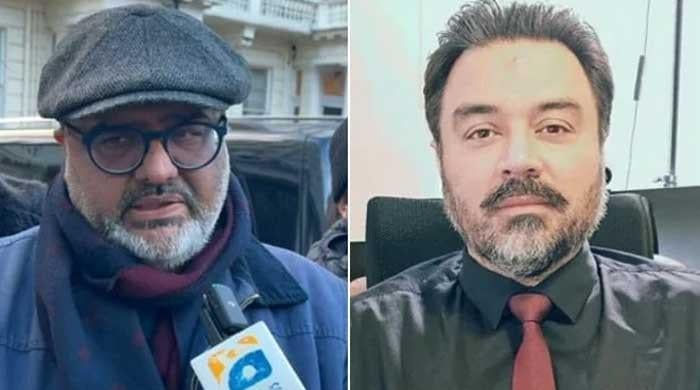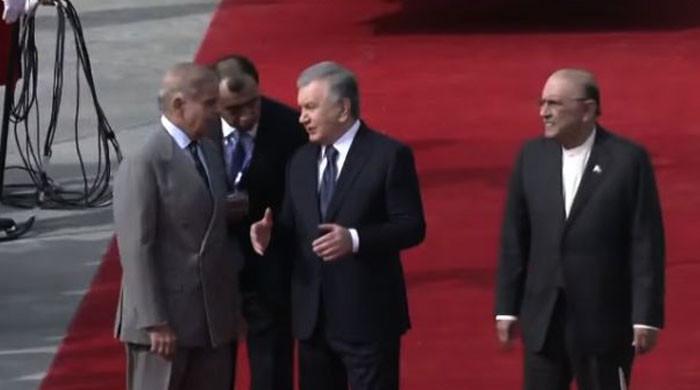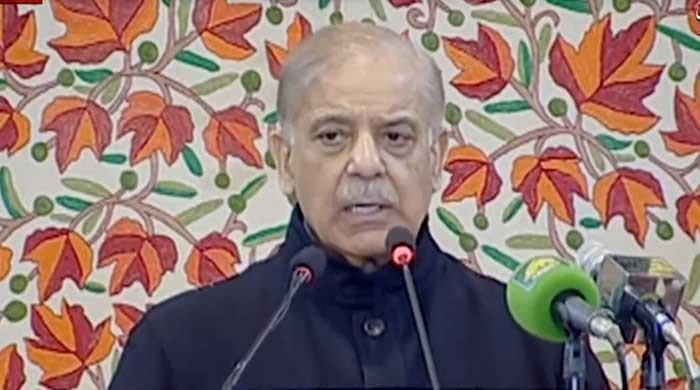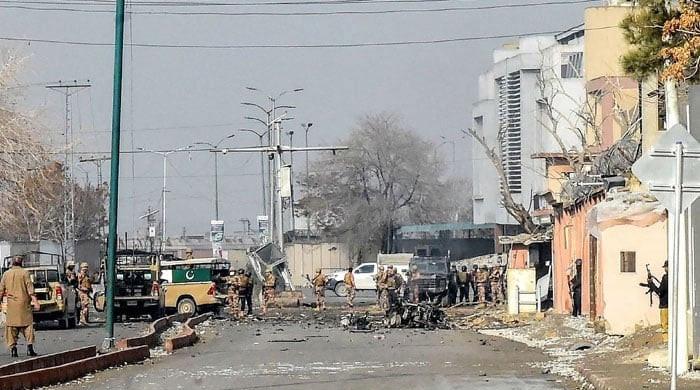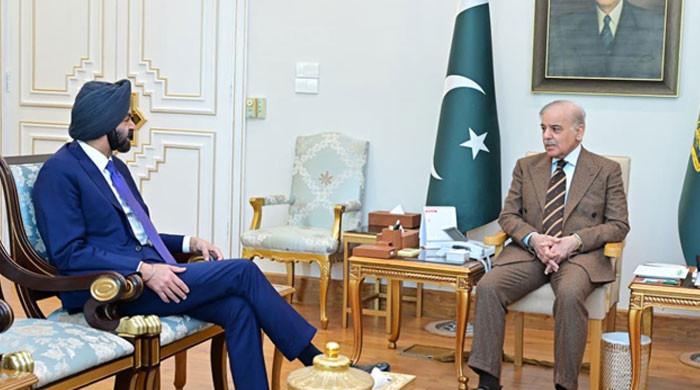Sindh invokes public order law to prevent Daniel Pearl murder suspects from walking free
The SHC had yesterday overturned a guilty verdict for four men accused of the 2002 murder of the US journalist
April 03, 2020
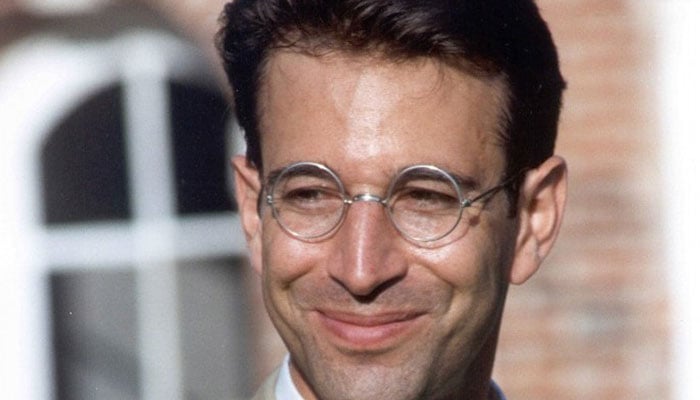
KARACHI: The Sindh government on Friday invoked the Maintenance of Public Order (MPO) law to keep the four men suspected of murdering US journalist Daniel Pearl in detention for another 90 days.
The orders were issued under Section 3 of the MPO a day after the Sindh High Court overturned the death penalty of prime suspect Omer Saeed Sheikh and acquitted his three accomplices in the case.
According to a notification issued by the Sindh Home Ministry, the release of Omer Saeed Sheikh, Fahad Naseem, Syed Salman Saqib and Sheikh Mohammad Adil could jeopardise the law and order situation in the province, thus necessitating their continued detention.
Talking to Geo News on the case, Foreign Minister Shah Mehmood Qureshi said we are surprised at the timing of the verdict and added that the order shall be challenged at a higher forum.
Qureshi said Pakistan has sacrificed a lot in the fight against terrorism.
Earlier, the United States had expressed concern on the acquittal of all four suspects from terrorism charges, terming the development an insult to victims of terrorism everywhere.
In a statement issued today, Principal Deputy Assistant Secretary of State Alice G. Wells said, “We welcome Pakistan’s decision to appeal the verdict. Those responsible for Daniel's heinous kidnapping and murder must face the full measure of justice.”
The SHC had on Wednesday completely acquitted three suspects of being involved in the kidnapping and murder of Wall Street Journal reporter back in 2002 and overturned the death penalty given to Omer Saeed Sheikh for murdering Pearl and instead handed him a seven-year imprisonment sentence for kidnapping the journalist.
Read also: SHC commutes death penalty of prime accused, acquits three accomplices
A two-judge bench of the high court, headed by Justice Mohammad Karim Khan Agha, had reserved its judgement last month after hearing the arguments of the appellants and the state counsel.
"The court has commuted Omar's death sentence to a seven year sentence," a defence lawyer had told Reuters by telephone after the verdict was announced. "The murder charges were not proven, so he has given seven years for the kidnapping."
"Omar has already served 18 years, so his release orders will be issued sometime today. He will be out in a few days," he had said.
A Sindh prosecutor said he would consider appealing against the court decision.
"We will go through the court order once it is issued, we will probably file an appeal," Faiz Shah, the provincial prosecutor general, told the news agency by telephone.
British national Omer Sheikh had been sentenced to death for kidnapping and killing Daniel Pearl by a court in 2002, and his three accomplices – Fahad Naseem, Syed Salman Saqib and Sheikh Mohammad Adil – were sentenced to life imprisonment with a fine of Rs500,000 each.
The counsels for the suspects, Rai Bashir and Khawaja Naveed Ahmed, had argued that the prosecution had failed to prove its case beyond reasonable doubt. "Ahmed and the three other suspects had neither aided, abetted, or participated in the alleged crime of kidnapping for ransom," it was argued.
They submitted that the prosecution witnesses in the case against Shiekh and others were mostly policemen, and their testimonies could not be relied upon. They said there was no eyewitness to the crime and the prosecution relied upon very weak circumstantial evidence for conviction.
The deputy prosecutor-general, Saleem Akhtar, however, had supported the anti-terrorism court's judgment and submitted that the prosecution had proved its case against the appellants beyond any shadow of a doubt while requesting the court to dismiss the appeals.
After hearing the arguments of all the parties to the case, the SHC bench acquitted three and commuted the sentence of the prime accused.
Daniel Pearl murder case
Pearl, a US national and the South Asian bureau chief of American publication The Wall Street Journal, was investigating militants in Karachi after the September 11, 2001 attacks on the United States.
He was kidnapped on January 23, 2002, in Karachi and later beheaded by his captors when their demands regarding his release were not met. A video emerged a few weeks later of his murder.
CPJ expresses concerns
In a statement, the Committee to Protect Journalists (CPJ) expressed disappointment with the verdict and asked for it to be appealed.
“The Committee to Protect Journalists is deeply disappointed to see justice in the murder case of Wall Street Journal reporter Daniel Pearl denied by a Pakistani court today,” said Steven Butler, CPJ’s Asia programme coordinator.






